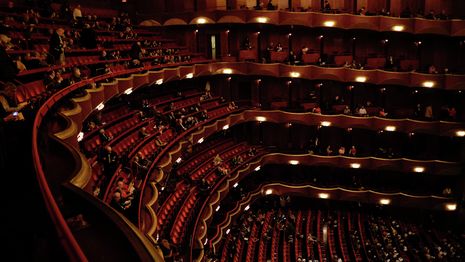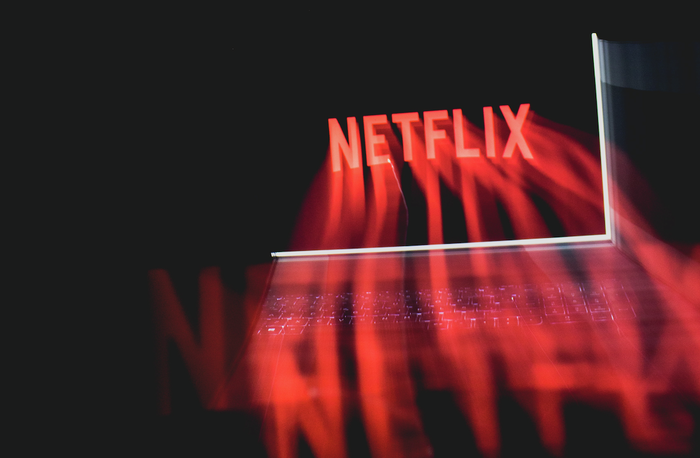Why does no one watch the Oscars anymore?
Art thrives where it’s provocative and angry, not where it’s institutionalised and corrupt – the Oscars are tired and outdated

Let us play a game of free association with the concept of The Oscars for a moment. Imagine yourself at an event as stylish and extravagant as the parties of Mr Jay Gatsby. Anyone who’s anyone is there. Chandeliers and fireworks frame Leonardo DiCaprio, and he raises his glass, welcoming you to the party. There’s an almost libidinal attraction to the spectacle. Unlike the sterile picture of a profligate aristocracy, this age of celebrity culture and new money welcome with it a tantalising sense of ‘I could be that too’.
A metaphorical glance through the windows of Gatsby’s mansion - this is how I imagine the producers of The Oscars thinking of the show’s audience, somewhat patronisingly. Noses are pressed against the glass trying to get closer— think of the aggressive herd of journalists that congregate up and down the red carpet. Hollywood sells an image of glamour and decadence akin to the American dream.
“Art thrives where it is provocative and angry”
In 1998, 55.3 million people tuned in to The Oscars - this is its highest figure ever according to Forbes magazine. Zoe Williams wrote that in the 90s “everybody was middle-class. Everybody was allowed a credit card and a holiday.” It was pre-9/11, pre-2008 financial crash, and people had the time and energy to daydream. So pop culture soared. The elegance of The Oscars seemed benign— something exciting to turn to. A change of pace to the boring suits of government.
Two decades later and 2022 saw the show’s second-lowest audience of 10.4 million. At first, the decline may seem counterintuitive. Celebrity culture is huge. Those two decades saw the invention and proliferation of the internet. The show has become more accessible and easy to watch. Yet, its viewership has fatally depreciated. So, why has the star-studded show become a turn-off?
The reason why no one watches The Oscars anymore is because of its failure to detach itself from the tired image of corrupt, regressive government
Where mass disillusionment, political apathy and social frustration exists, a vibrant counter-culture inevitably appears. The Beat poets howled their poetry after the restraint of the “silent generation”. Elvis Presley’s provocative rockstar hips rose to prominence in the context of conservative fifties America. 1969’s Woodstock Music Festival was advertised as ‘three days of peace’ amid protests against the US government’s futile and violent Vietnam war. Art thrives where it is provocative and angry.
“Donald Trump and Harvey Weinstein are the same word in a different font”
Yet, the Academy of Motion Pictures cannot masquerade as anti-establishment when the organisation itself appears so deeply institutionalised. Donald Trump and Harvey Weinstein are the same word in a different font - both patriarchal, power-hungry figures, misogynistic and wreaking of sexual assault allegations. Perhaps the government and The Academy were always corrupt and unappealing. But these figures both exemplify how extreme that repulsion has become.
In 2014, 12 Years a Slave won the award for Best Film. We can see this move as both fantastic approval for a fantastic movie, but also as gesture politics. It’s a safe film to celebrate, nodding to America’s past of slavery but not implicating present day America. Films like Get Out and Fruitvale Station fail to receive the same level of critical acclaim, despite box office success that shows audiences want more complex, provocative and current portrayals of the African American experience. The Oscars is too slow to realise this.
Too precious to let Ricky Gervais come along and roast its celebrity audience, The Oscars has become something unexciting and irrelevant. Every musician who composes a Bond theme tune wins. Every actor who plays the onset of some chronic illness takes home the prize. The predictable and uncontroversial results don’t have you sitting on the edge of your seat.
When there is a superfluity of channels and websites that have democratised celebrity culture, why would you need to watch The Oscars to get your fix of stars? It’s time to settle for a recap of Oscars’ Best Moments on TikTok the morning after.
 News / Hundreds of Cambridge academics demand vote on fate of vet course20 February 2026
News / Hundreds of Cambridge academics demand vote on fate of vet course20 February 2026 News / Judge Business School advisor resigns over Epstein and Andrew links18 February 2026
News / Judge Business School advisor resigns over Epstein and Andrew links18 February 2026 News / Petition demands University reverse decision on vegan menu20 February 2026
News / Petition demands University reverse decision on vegan menu20 February 2026 News / University Council rescinds University Centre membership20 February 2026
News / University Council rescinds University Centre membership20 February 2026 News / CUCA members attend Reform rally in London20 February 2026
News / CUCA members attend Reform rally in London20 February 2026










